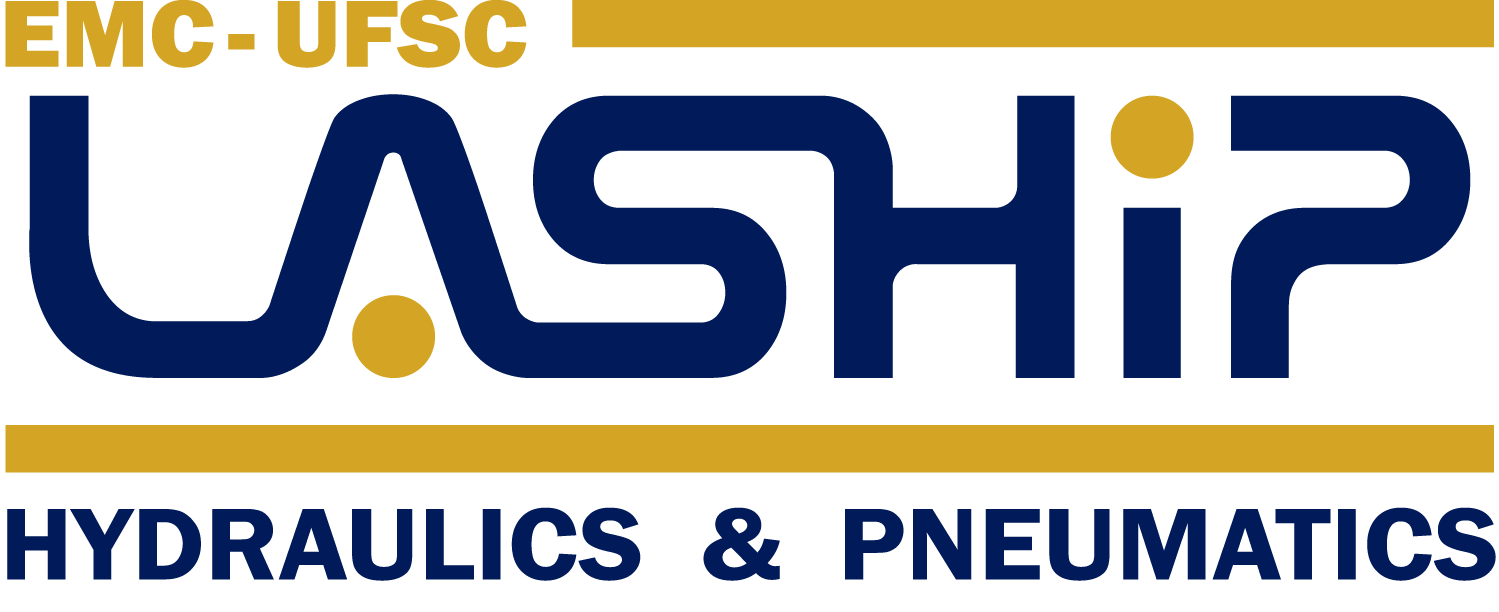Candidate: Cláudio L. D`Elia Machado
Program: UFSC / POSMEC
Date: May, 2010
Advisor: Victor Juliano De Negri
Co-advisor: Mauro André Barbosa Cunha (CEFET-RS); Raul Guenther (in memoriam)
Abstract: This work addresses the problem of controlling hydraulic robots using overlapped proportional valves which perform trajectory tracking, with special focus on the dead-zone compensation of these valves. Hydraulic robots present great load capability and a huge potential of application in the industry. This is due to the high torque/size ratio of the hydraulic actuators and its ability to respond quickly to control signals. However, hydraulic robots introduce some difficulties to the control. There are, for example, dynamic coupling, problems to estimate the mathematical model parameters, changes in some parameters during operation and a nonlinear behavior mainly caused by friction in the hydraulic cylinder and the dead-zone of overlapped proportional valves. In this work, a cascade control strategy is applied to surpass these difficulties. This strategy is based on the division of the hydraulic robot mathematical model into subsystems and allows the application of nonlinear control techniques to overcame the inherent difficulties in each subsystem. Both the friction in the hydraulic cylinder and the dead-zone of the valve cause tracking errors in the robot trajectory. Friction influences the motion dynamics in the mechanical subsystem which has as input the force produced in the cylinder by the hydraulic subsystem and as output the angular position of the robot links. Tracking errors of the links positions caused by friction can be reduced through its direct compensation in the subsystem using mechanical friction observers based on dynamic models. The dead-zone slows the opening of the valve causing significant force tracking errors in the hydraulic subsystem. The compensation can be accomplished through an inverse function of the deadzone. Thus, this work presents a cascade controller able to compensate the dynamics of the valve and the dead-zone, the dynamics of the hydraulic force, friction and motion of the robot links. Adaptation laws for the dead-zone inverse function are also presented. The adaptation laws implementation has the main goal to reduce tracking errors of the hydraulic subsystem through the dead-zone compensation and consequently the reduction of angular position tracking errors of the robot. It is shown through Lyapunov stability analysis and through experimental tents that position tracking errors converge to a residual set even when the cascade controller does not perform compensation for friction and valve dynamics, but using only the adaptation laws and dead-zone compensation proposed in this work. Theoretical and experimental results showed that the dead-zone compensation may also compensate, indirectly, other dynamics such as friction.
MACHADO, C. L. E. Controlador em Cascata com Adaptação de Parâmetros para Robôs Hidráulicos. 2010. Tese (Programa de Pós Graduação em Engenharia Mecânica), 216 p. Universidade Federal de Santa Catarina: Florianópolis.


